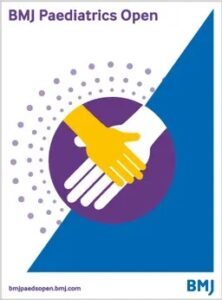A new approach to children’s work that prioritises resilience, well-being and agency: emerging findings from a ‘cash plus’ intervention in Bangladesh
| Year | : | 2025 |
|---|---|---|
| Author/s | : | Neil Howard, Keetie Roelen, Giel Ton, Mauricio Espinoza, Saklain Al Mamun, Kabita Chowdhury, Taslima Aktar, Lopita Huq |
| Area/s | : | Employment, productivity and innovation, Poverty and equality |
Howard, N., Roelen, K., Ton, G., Espinoza, M., Al Mamun, S., Chowdhury, K., Aktar, T. y Huq, L. (2025). A new approach to children’s work that prioritises resilience, well-being and agency: emerging findings from a ‘cash plus’ intervention in Bangladesh. BMJ Paediatrics Open, 9(1), e002422. https://doi.org/10.1136/bmjpo-2023-002422
Background: Criticism of mainstream approaches to child labour is widespread and well-established. The Child Labour Action Research in South and Southeast Asia (CLARISSA) Cash Plus pilot sought to address these critiques through an innovative programme that prioritised the development of household resilience and well-being, and through increasing household capacity to make alternative choices around children’s work.
Research: Funded by the UK’s Foreign, Commonwealth and Development Office, this pilot delivered unconditional cash transfers (UCTs) and needs-based case management and community mobilising across an entire slum neighbourhood in Dhaka, Bangladesh. Cash worth about 20% of household monthly income was delivered to all households for 7 months, with case work and community organising wrapped around for 21 months. The intended outcomes were that families would be able to increase their economic resilience and develop alternative capacities to meet their needs, with the intended goals of increasing well-being and the ability to make choices other than difficult or dangerous work for children. Research into impact was rooted in contribution analysis and combined bimonthly monitoring surveys administered by the community mobilisers; surveys at multiple time points; three rounds of targeted focus group discussions; three rounds of key informant interviews with case study households; community mobiliser diaries; and ethnographic observation.
Results and conclusions: The results strongly suggest that UCTs reduce poverty, increase economic resilience; improve well-being; and generate various household-level improvements that relate directly and indirectly to children’s work. They further suggest that case work and community organising act as a beneficial form of social protection and a tool for developing locally appropriate micro-responses to collective problems that commonly impact directly on well-being and indirectly on children’s work. These results point to the potential for this intervention to be scaled-up in efforts to achieve the eighth Sustainable Development Goal of ensuring decent work for all, including the elimination of child labour.







